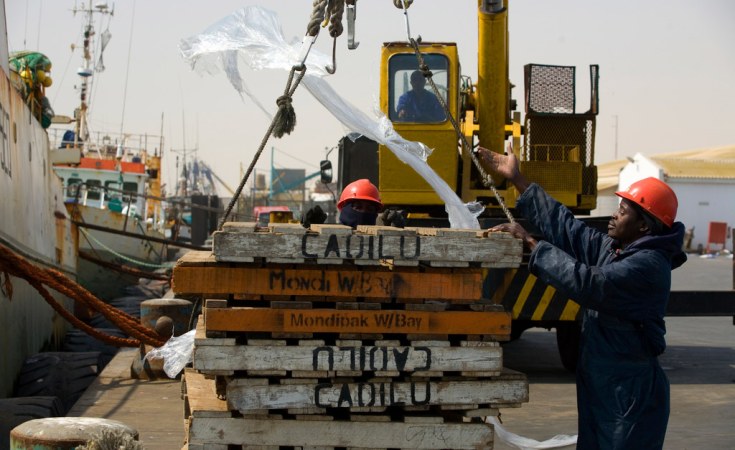Walvis Bay — Fisheries minister Derek Klazen has expressed deep concern over the magnitude of illegal, unreported and unregulated (IUU) fishing on the country's coastal line.
The minister said the plundering of Namibia's resources continues unabated, with neighbouring countries also implicated in these illicit activities both inland and at sea. Addressing the fishing industry, Klazen highlighted the persistent challenges posed by both coastal and inland illegal activities, asserting that they remain a significant headache for the government.
Illegal fishing overall is a costly exercise, as it not only robs the country of revenue but also impacts the sustainable management systems in place for the harvesting and safeguarding of natural resources.
Expressing his deep concern about the involvement of citizens from neighbouring countries in illegal fishing, Klazen said plans are currently underway to engage with counterparts to harmonise laws and enforcement measures."We have received alarming reports of an increase in incidents linked to or potentially linked to IUU at our northern coastal border," Klazen stated.
To counter this, the ministry has decided to allocate up to 50% of its control, monitoring, and surveillance sea operations to the northern border with the Republic of Angola. Klazen expressed optimism that these efforts will lead to a tangible reduction in IUU fishing activities.
According to him, the ministry will continue to deploy all resources at its disposal to deter any fishing practices that compromise the sustainability of our aquatic living resources and credibility of our fishery, aiming to combat IUU fishing within Namibia's jurisdiction.
Losing N$1.5 billion
The Confederation of Namibian Fishing Associations (CNFA) in September this year revealed that Namibia is losing over N$1.5 billion annually due to IUU fishing activities. The CNFA reported that six or seven foreign trawlers, allegedly operating under licence in Angolan waters, harvest over 100 000 tonnes of fish in Namibia's northern waters each year.
CNFA chairperson Matti Amukwa then called for urgent intervention to halt illegal fishing in Namibian waters. He emphasised the need to take immediate action against well-known IUU vessels, stressing that reliance on other countries' governments is insufficient to stop the pilferage of Namibia's resources.
"Illegal fishing in Namibia's northern waters has been ongoing since 2015. A 2017 report on IUU by the ministry, supported by the industry, concluded that combating IUU requires the deployment of monitoring, control, and surveillance platforms at and around the northern maritime border," Amukwa said.
He also pointed out that foreign vessels predominantly harvest horse mackerel, but their disregard for the 200m isobath line results in the capture of other species, such as hake, kingklip, and dentex. These illegally caught fish are not considered in determining the total allowable catch (TAC) for quota species, potentially leading to overfishing and the collapse of the fishery.
"Namibia faces a critical juncture in addressing IUU fishing, with government and industry stakeholders working together to protect the country's valuable marine resources," he said.


